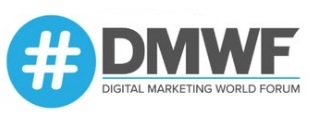
There was a time when digital commerce meant static storefronts. Back then, if you were to purchase from a business, you’d almost definitely have spoken to someone along the way – either face-to-face or over the phone. Perhaps it was the cashier at your local grocery or the account manager at your local bank. You might have even known their name. Even if you didn’t, you’d expect that staff would be trained in a variation of the phrase, ‘the customer is always right’ as a shorthand for saying ‘we want to deliver an experience that brings you, the customer, back’.
Consumers expected this experience to hit certain standards, which businesses tried to match or outperform by delivering processes, standards and policies that encouraged customers to continue purchasing from them. While no easy feat for businesses, the relative lack of variety of distinct touchpoints with customers did mean that delivering an excellent customer experience allowed for a narrow focus.
Compare that to today, and it’s clear that digital commerce makes customer experience an altogether different proposition.
Nowadays, customers expect to be able to engage with and purchase from businesses through any number of digital channels, whether via direct mobile or web channels, online marketplaces or even via social commerce.
For businesses, each commerce channel can surface its own set of challenges to overcome to improve customers’ experience. Website design might not allow for enough information to drive conversions among consumers for high-consideration items. Mobile commerce might limit the branding elements necessary to build ongoing affinity. A lack of tech maturity might undermine efforts to deliver a good experience via social commerce.
Complicating this dynamic further, consumers are likely to engage with brands on multiple formats with multiple touchpoints, making the pursuit of an excellent customer experience one that needs to weave together information from disparate sources.
For the customer experience leader, such an ecosystem makes what was a case of narrowing down on issues a much more difficult job. Essentially, it means that businesses trying to deliver a customer-centric strategy have far more versions of the customer to cater for.
That all said, eCommerce, mCommerce and sCommerce have opened up new frontiers for businesses, radically altering revenue performance across industries and separating a new pack of leaders from laggards. It will only continue to increase in importance since it makes purchasing much more convenient for everyone.
Digital commerce also opened up more opportunities for differentiation through customer experience. While customer experience used to be individualised and delivered through relatively few channels, the range of touchpoints now mean that it’s likely most businesses won’t be perfect, creating opportunities to outperform competitors. Recent Gartner research has shown that as many as 87% of companies expect to compete on customer experience in 2021.
To succeed, businesses are aiming to deliver on strategies that define each different arena to play in, how to deliver an excellent experience in each, and what resources are needed to do so. This can be weighed against performance metrics to optimise over time and rebalanced over time as consumer behaviours and business needs shift.
This must be a continual effort for customer experience leaders to engage in. What ‘best in class’ customer experience looks like will continue to evolve as commerce channels themselves evolve, affecting different sectors in different timelines, as businesses look to solve their customer profiles’ main pain-points.
Ultimately, the landscape is so different now than before digital commerce became mainstream that it’s hard to say when customers had it better – but it’s possible to say that the job of delivering it is much more complex. The good news is that it opens up opportunities for customer experience leaders to drive real value for their business – likely more so than ever before.

Interested in hearing leading global brands discuss subjects like this in person?
Find out more about Digital Marketing World Forum (#DMWF) Europe, London, North America, and Singapore.







Very interesting article!